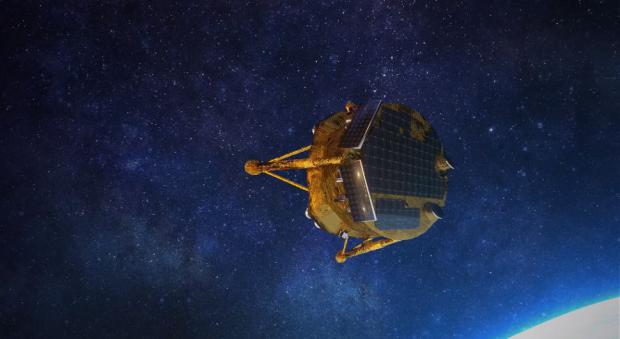
Breaking News
Importing Poverty into America: Devolving Our Nation into Stupid
 Grand Theft World Podcast 273 | Goys 'R U.S. with Guest Rob Dew
Grand Theft World Podcast 273 | Goys 'R U.S. with Guest Rob Dew
 Anchorage was the Receipt: Europe is Paying the Price… and Knows it.
Anchorage was the Receipt: Europe is Paying the Price… and Knows it.
 The Slow Epstein Earthquake: The Rupture Between the People and the Elites
The Slow Epstein Earthquake: The Rupture Between the People and the Elites
Top Tech News
 Drone-launching underwater drone hitches a ride on ship and sub hulls
Drone-launching underwater drone hitches a ride on ship and sub hulls
 Humanoid Robots Get "Brains" As Dual-Use Fears Mount
Humanoid Robots Get "Brains" As Dual-Use Fears Mount
 SpaceX Authorized to Increase High Speed Internet Download Speeds 5X Through 2026
SpaceX Authorized to Increase High Speed Internet Download Speeds 5X Through 2026
 Space AI is the Key to the Technological Singularity
Space AI is the Key to the Technological Singularity
 Velocitor X-1 eVTOL could be beating the traffic in just a year
Velocitor X-1 eVTOL could be beating the traffic in just a year
 Starlink smasher? China claims world's best high-powered microwave weapon
Starlink smasher? China claims world's best high-powered microwave weapon
 Wood scraps turn 'useless' desert sand into concrete
Wood scraps turn 'useless' desert sand into concrete
 Let's Do a Detailed Review of Zorin -- Is This Good for Ex-Windows Users?
Let's Do a Detailed Review of Zorin -- Is This Good for Ex-Windows Users?
 The World's First Sodium-Ion Battery EV Is A Winter Range Monster
The World's First Sodium-Ion Battery EV Is A Winter Range Monster
 China's CATL 5C Battery Breakthrough will Make Most Combustion Engine Vehicles OBSOLETE
China's CATL 5C Battery Breakthrough will Make Most Combustion Engine Vehicles OBSOLETE
Pioneering Israeli Lunar Lander Arrives in Orbit Around the Moon

up next is a historic touchdown attempt on April 11.
Israel just became the seventh nation to orbit the moon.
After slowly spiraling away from Earth for the past six weeks, an Israeli spacecraft known as Beresheet slipped into orbit around the moon today (April 4).
This was a historic achievement for the little robot, but it paves the way for something truly epic: a lunar touchdown attempt a week from now. If Beresheet succeeds on April 11, it will become the first Israeli craft, and the first privately funded vehicle, ever to land softly on the surface of the moon.
"The lunar capture is an historic event in and of itself — but it also joins Israel in a seven-nation club that has entered the moon's orbit," Morris Kahn said in a statement. "A week from today, we'll make more history by landing on the moon, joining three superpowers who have done so. Today I am proud to be an Israeli."
Kahn chairs SpaceIL, the nonprofit organization that runs Beresheet's mission along with Israel Aerospace Industries, the nation's largest aerospace and defense contractor.
The superpowers he referenced are the deep-pocketed governments of the Soviet Union, the United States and China. So, Beresheet also aims to strike a blow for low-cost space exploration; the total mission price tag, including launch, is about $100 million, project team members have said.
Beresheet's mission got its start in 2011, when SpaceIL formed to compete in the Google Lunar X Prize (GLXP).
The GLXP challenged privately funded teams to land a robot on the moon, move it at least 1,650 feet (500 meters) on the surface and have it beam high-resolution imagery home to Earth. The first group to accomplish these tasks would get $20 million, and the second-place team would snare $5 million. An additional $5 million was available for various special accomplishments, bringing the total purse to $30 million.



